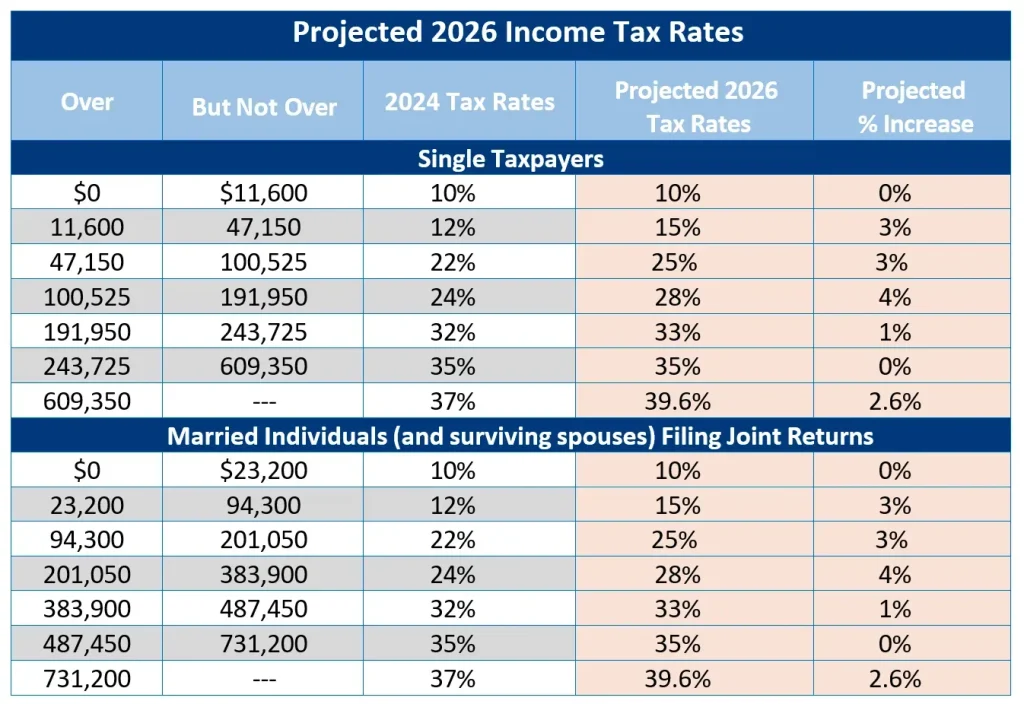In 2025, significant tax changes are set to reshape the financial landscape for many individuals and businesses, as proposed by the Union Budget 2025. With the income tax exemption limit rising to ₹12 lakh, taxpayers will find themselves with increased disposable income, enhancing their spending power. Additionally, the TDS threshold increase on fixed deposit interest from ₹40,000 to ₹50,000 will provide further financial relief for non-senior citizens. This strategic move by the finance ministry, expected to increase bank deposits by ₹40,000-45,000 crore, aims to boost liquidity in the banking system. These changes reflect a concerted effort to foster economic growth while encouraging savings and investments through bank deposits and fixed income instruments.
The upcoming modifications in taxation for 2025 bring promising alterations aimed at benefiting taxpayers and boosting financial stability. With a notable hike in the tax exemption ceiling and an enhanced threshold for TDS on interest from bank deposits, these reforms will not only ease the tax burden but also encourage saving habits. By allowing higher interest income to be shielded from tax, individuals can expect increased benefits from bank deposits and fixed income schemes. Such initiatives are anticipated to invigorate the economy and enhance overall liquidity within the banking sector, fostering a more robust financial environment moving forward. In this transformative landscape, the focus is on amplifying the advantages for taxpayers while promoting sustainable growth.
Understanding the Income Tax Exemption Limit Increase
The Union Budget 2025 has introduced a significant change to the income tax exemption limit by raising it to ₹12 lakh. This adjustment is expected to directly benefit a considerable number of taxpayers, allowing them to retain a larger portion of their income without the burden of taxation. As the exemption limit increases, individuals can plan their finances more effectively, which may also encourage higher consumption and savings in the economy.
With the income tax exemption limit set to ₹12 lakh, taxpayers can now enjoy more disposable income. This policy change is designed to stimulate economic growth by allowing citizens to allocate funds towards investments or consumption, ultimately fostering higher liquidity in the financial system. Furthermore, this increase aligns with the government’s aim to enhance the financial well-being of the middle class, thereby promoting overall fiscal health.
Impact of TDS Threshold Increase on Fixed Deposit Interest
In the Union Budget 2025, the proposal to raise the TDS threshold on fixed deposit interest from ₹40,000 to ₹50,000 for general (non-senior) citizens signifies a move to make savings instruments more attractive. By increasing the limit, the government reduces the tax burden on the interest earned, which may spur additional investments in fixed deposits. This measure can encourage individuals to save more in banks, thereby enhancing liquidity.
The rise in the TDS threshold for fixed deposits is expected to lead to higher bank deposits, with projections suggesting an increase of ₹40,000-45,000 crore. With more funds available in the banking system, banks will benefit from improved liquidity, which can be utilized for lending purposes. This could potentially lead to lower interest rates on loans as banks gain more capital to operate, ultimately benefiting consumers through cheaper borrowing costs.
Banking System Liquidity Boost through Budget Changes
The recent announcements in the Union Budget 2025 are anticipated to significantly bolster the banking system’s liquidity. The expected influx of ₹40,000-45,000 crore due to tax changes will enhance the current account savings account (CASA) ratio, which is already at a commendable level. Increased liquidity in the banking sector is critical, as it alleviates excessive reliance on high-cost borrowing, allowing banks to offer more competitive loans.
As more citizens are encouraged to deposit their savings due to the enhancements in income tax exemptions and increased TDS thresholds, the overall financial health of banks will improve. This alteration in deposit behavior is likely to stimulate economic activities, enabling banks to support broader investment and consumption goals across various sectors.
Anticipated Benefits of Increased Bank Deposits
The expected increase in bank deposits in the wake of the budget proposals brings forth numerous benefits for the economy. As deposits grow, banks can enhance their lending capabilities, which is crucial for funding businesses and personal loans. Moreover, an increase in deposits signals consumer confidence, indicating that citizens feel secure enough to invest their money in banks rather than holding it as cash.
Furthermore, higher bank deposits can lead to an improvement in the financial stability of the banking sector, allowing banks to manage risks more effectively. As liquidity improves, the banking sector will be better equipped to handle economic uncertainties while providing necessary financial products and services to citizens.
Forecasting the Effects on Fixed Deposit Rates
With the rise in the TDS threshold and the anticipated increase in bank deposits, the fixed deposit rates may come under pressure in the near future. As banks benefit from an ample supply of funds, they may opt to lower interest rates on fixed deposits. While this could dismay some investors, it may also encourage spending and consumption in other sectors of the economy as the financial landscape adjusts.
The interplay between deposit rates and the increased influx due to tax changes could lead banks to reconsider their strategies concerning fixed deposits. Rather than focusing solely on attracting depositors with higher rates, banks might prioritize lending activities that drive economic growth. This could ultimately affect how individuals approach their saving strategies, with a shift towards other investment avenues rather than traditional fixed deposits.
The Importance of the Union Budget on Financial Planning
The Union Budget 2025 is a pivotal tool for shaping financial planning for individuals and businesses alike. Changes such as raising the income tax exemption limit and TDS thresholds are vital for enhancing financial security and savings strategies. Taxpayers must now reassess their financial plans, taking advantage of the new provisions to maximize returns and reduce their taxable income.
In light of these budgetary changes, professional financial consultants may see an increase in demand for advice on navigating the new landscape. Individuals looking to optimize their income streams and investment portfolios will likely seek insights into effective financial planning strategies that align with the updated tax framework introduced by the government.
Consumer Confidence and Economic Growth Prospects
The adjustments in tax structures proposed in the Union Budget 2025 are aimed at fostering consumer confidence, a crucial element for sustained economic growth. The combination of higher tax exemptions and increased savings through fixed deposit TDS thresholds will likely provide citizens with the reassurance they need to participate actively in the economy. As they perceive financial security, consumers may increase spending, sparking a cycle of economic activity.
A boost in consumer confidence can lead to enhanced economic growth prospects as businesses respond to increased demand for goods and services. This uptick in consumer spending can help lead to a robust economic recovery, particularly as businesses begin to invest heavily in meeting this new demand. Ultimately, the momentum created through these tax changes may result in a more vibrant and dynamic economy moving forward.
Evaluating the Role of Tax Policy in Financial Markets
Tax policy plays a significant role in shaping financial markets and investor behavior. The proposed changes in the Union Budget 2025 can encourage individuals to redirect funds into more productive investments, including stocks, bonds, and business ventures, as they retain more income due to higher tax exemptions. This shift in resource allocation can have a profound impact on capital markets.
In addition, the raising of TDS thresholds may lead to a re-evaluation of fixed deposits as the primary savings instrument for many investors. As individuals explore alternatives to maximize their returns without incurring tax burdens, engagement in financial markets could intensify, ultimately creating a more balanced investment environment.
Strategic Implications for Future Financial Policies
The strategic implications of the tax changes introduced in the Union Budget 2025 extend to future financial policies as well. These reforms may set a precedent for subsequent budgets, illustrating the government’s commitment to enhancing taxpayer welfare through incentives that encourage savings and investments. As economic conditions evolve, policy adjustments may continue to reflect the priorities of citizens and the changing market landscape.
Additionally, as stakeholders observe the short and long-term effects of the current budget changes, feedback will likely influence future policy directions. The government may take further steps to streamline the tax regime, ensuring that it remains conducive to economic growth and stability while promoting wider participation in the financial system.
Frequently Asked Questions
What are the upcoming tax changes in 2025 regarding the income tax exemption limit?
In the Union Budget 2025, the income tax exemption limit will be raised to ₹12 lakh. This change is expected to benefit many taxpayers by increasing their disposable income, thereby enhancing savings and investments.
How will the TDS threshold increase affect fixed deposit interest for 2025?
The TDS threshold for interest earned from fixed deposits for general (non-senior) citizens will increase from ₹40,000 to ₹50,000 per financial year in 2025. This means that individuals can earn more in fixed deposit interest without incurring TDS deductions.
What impact will the tax changes in the Union Budget 2025 have on bank deposits?
The tax changes in the Union Budget 2025, including an increase in the income tax exemption limit and the TDS threshold, are expected to lead to an increase in bank deposits by ₹40,000-45,000 crore, enhancing the liquidity of the banking system.
Will senior citizens benefit from the tax changes proposed in 2025?
Yes, the Union Budget 2025 proposes to raise the TDS threshold on fixed deposit interest income for senior citizens from ₹50,000 to ₹1 lakh starting in FY26, providing them with more income without tax deductions.
How do tax changes in 2025 affect financial liquidity in banks?
The tax changes proposed in the Union Budget 2025, such as increasing the income tax exemption limit and raising the TDS threshold, are projected to attract additional deposits into banks, thereby increasing financial liquidity and reducing reliance on high-cost borrowing.
When will the changes proposed in the Union Budget 2025 take effect?
Most of the tax changes proposed in the Union Budget 2025 are expected to come into effect in the financial year 2025-26, impacting individual taxpayers and the banking sector accordingly.
| Key Point | Details |
|---|---|
| Income Tax Exemption Limit | Increased to ₹12 lakh. |
| TDS Threshold for Non-Senior Citizens | Raised from ₹40,000 to ₹50,000 on fixed deposits. |
| TDS Threshold for Senior Citizens | Increased from ₹50,000 to ₹1 lakh starting FY26. |
| Expected Bank Deposits Increase | ₹40,000-45,000 crore anticipated from tax changes. |
| CASA Ratio Impact | Measures aimed at boosting the CASA ratio currently at 40%. |
| Insurance Laws Amendment Bill | 100% FDI and composite license proposed. |
Summary
Tax changes 2025 are set to reshape the financial landscape significantly. The proposed increase in the income tax exemption limit and modifications to the TDS thresholds are expected to boost bank deposits substantially. With anticipated additional deposits of ₹40,000-45,000 crore, these reforms will enhance the liquidity within the banking system and reduce dependency on costly borrowings. Furthermore, the Insurance Laws Amendment Bill promises critical reforms that could attract greater foreign investment, positioning India for robust economic growth in the upcoming fiscal year.



